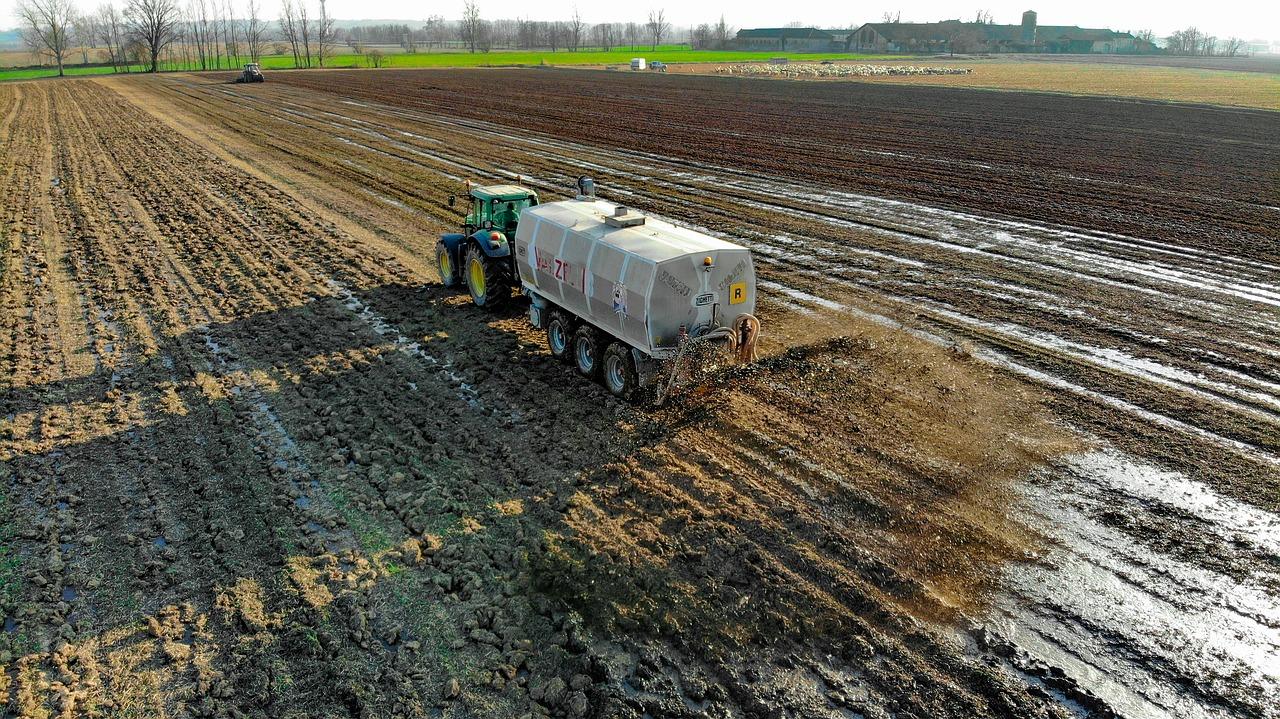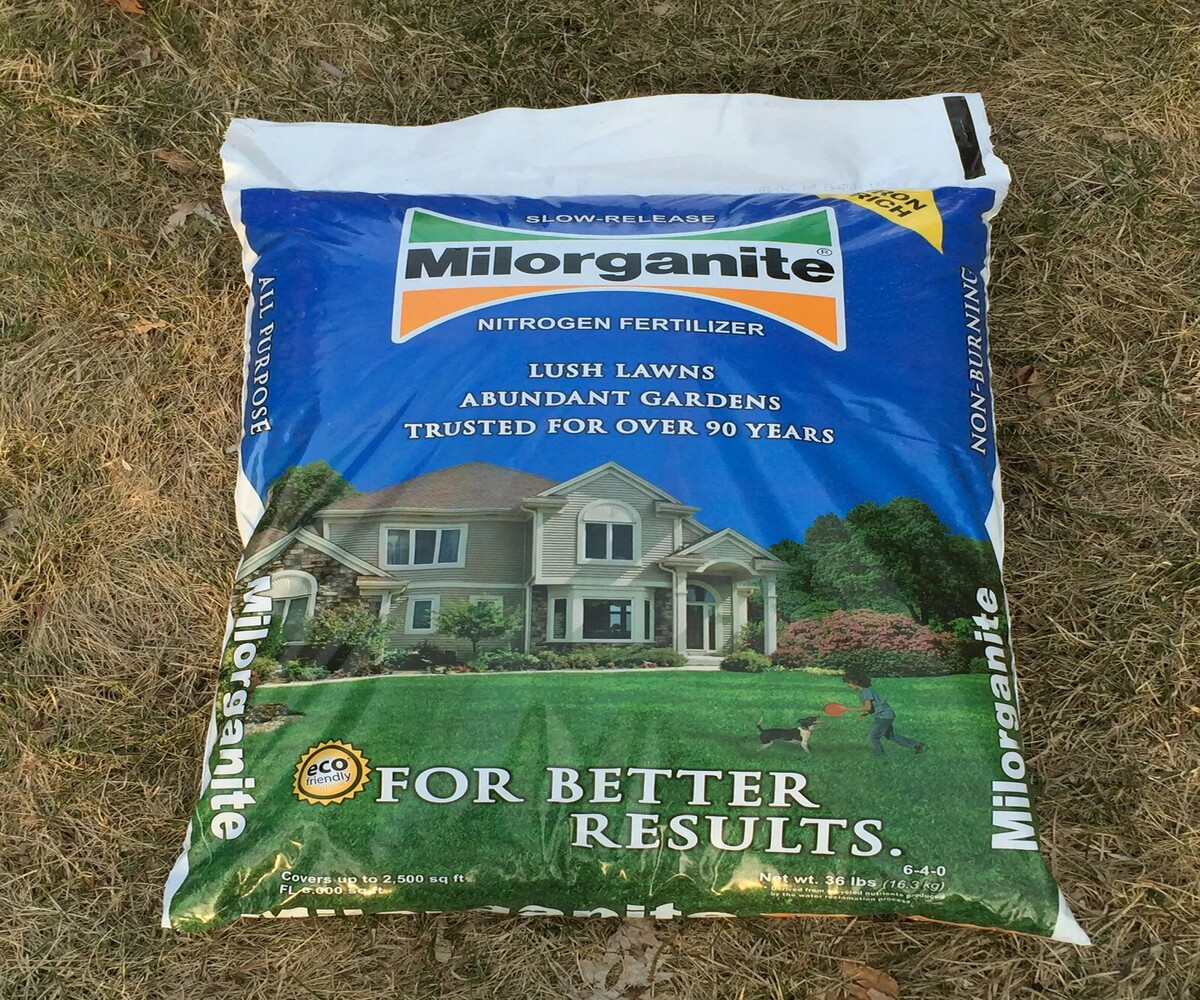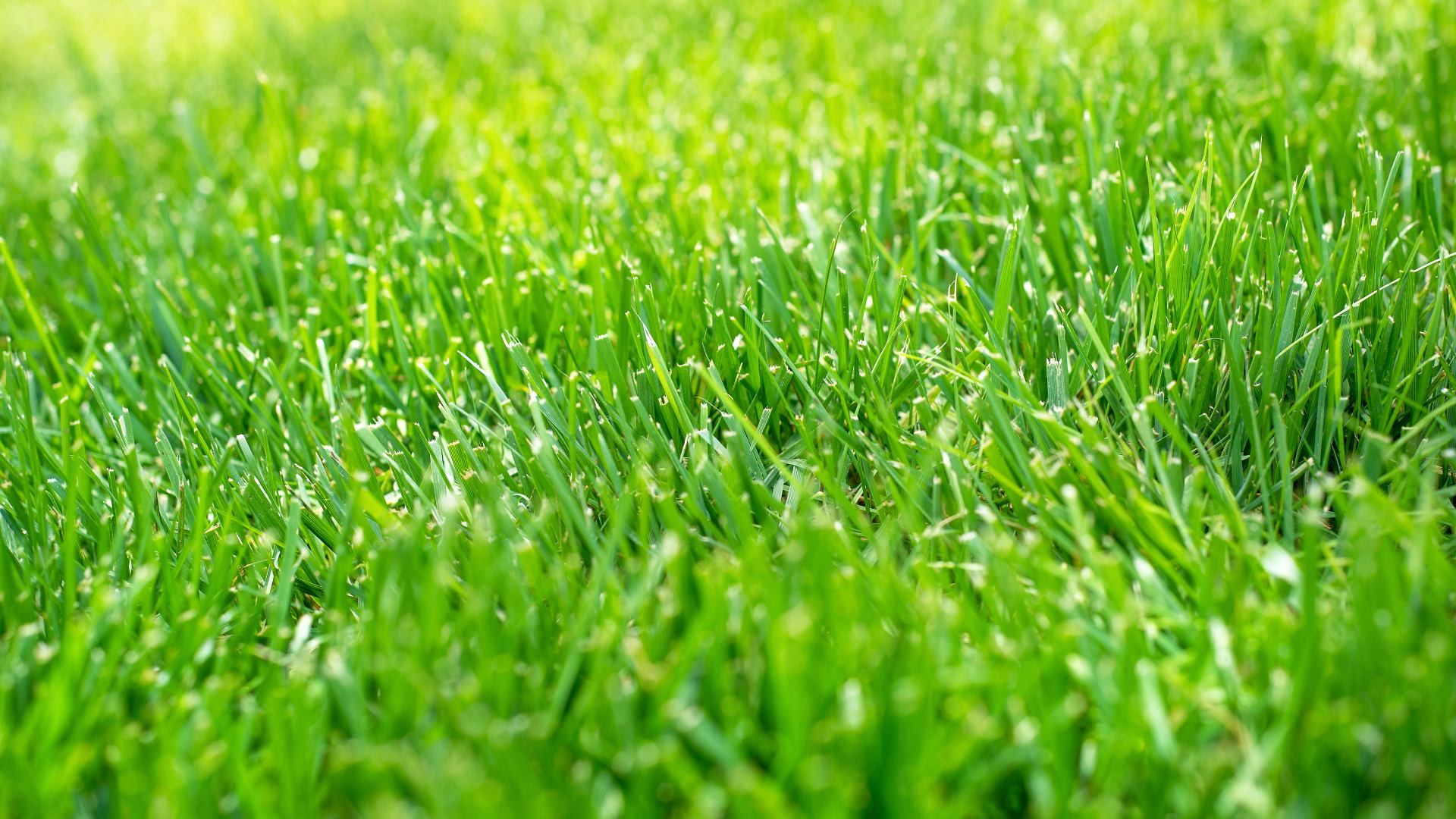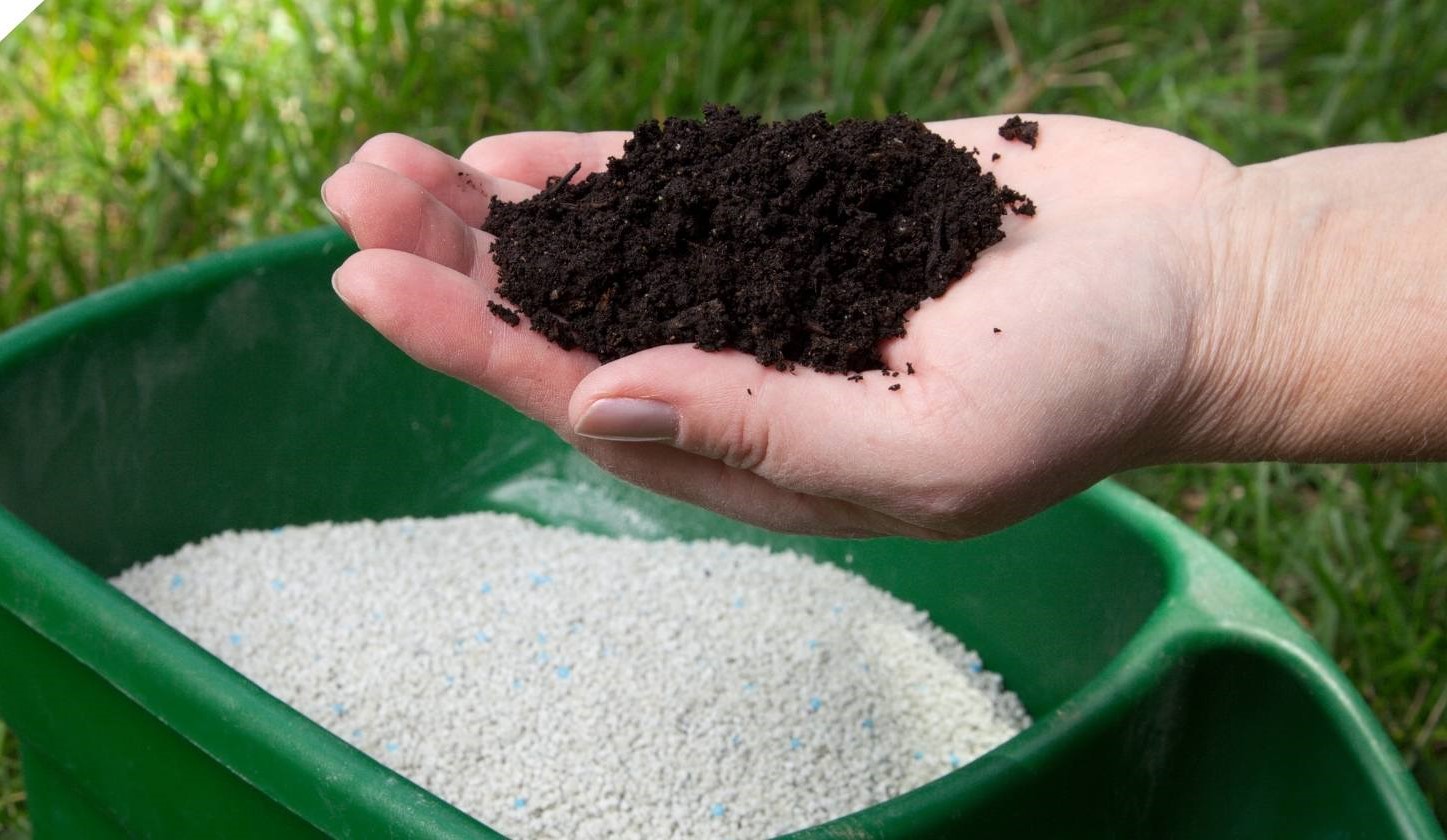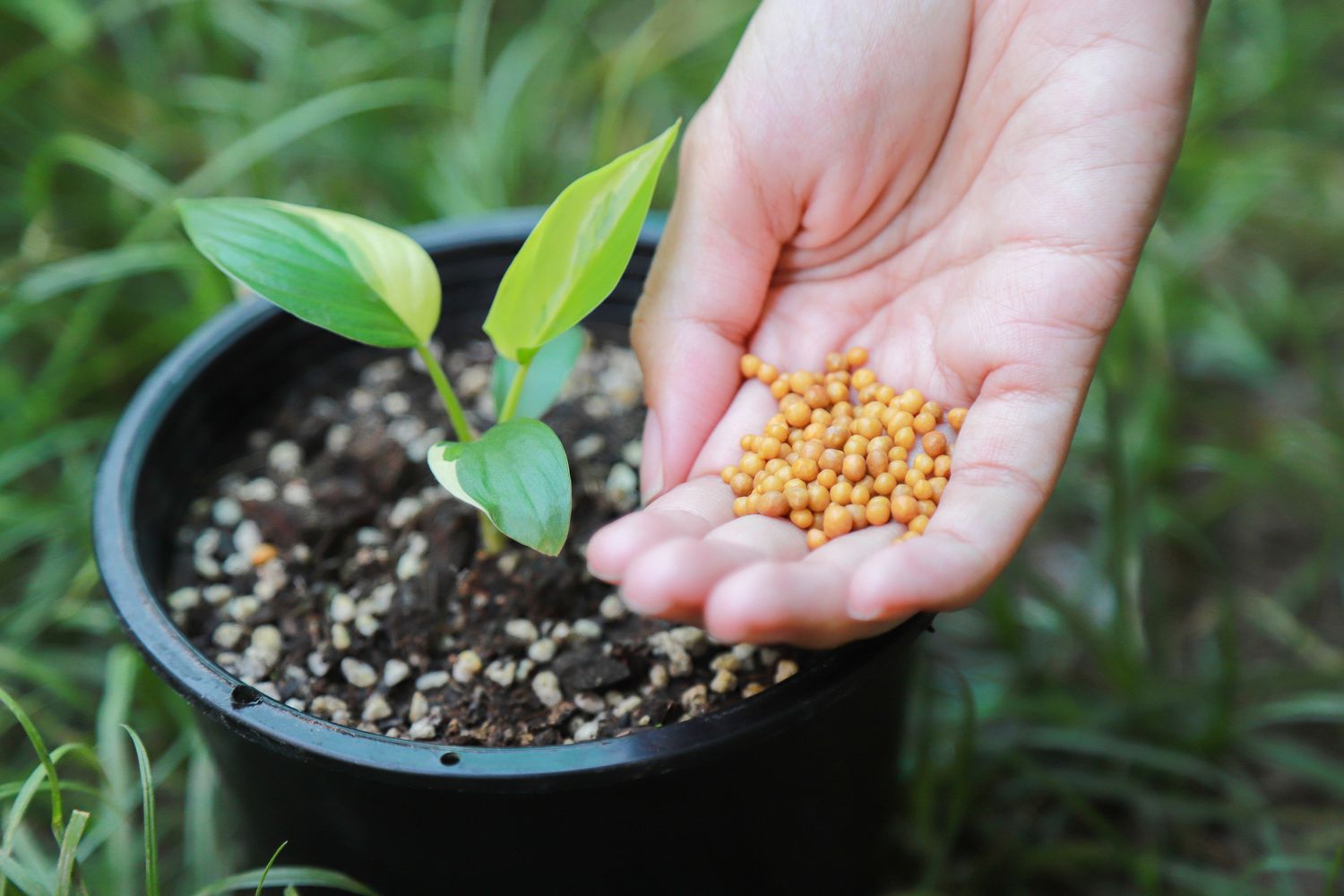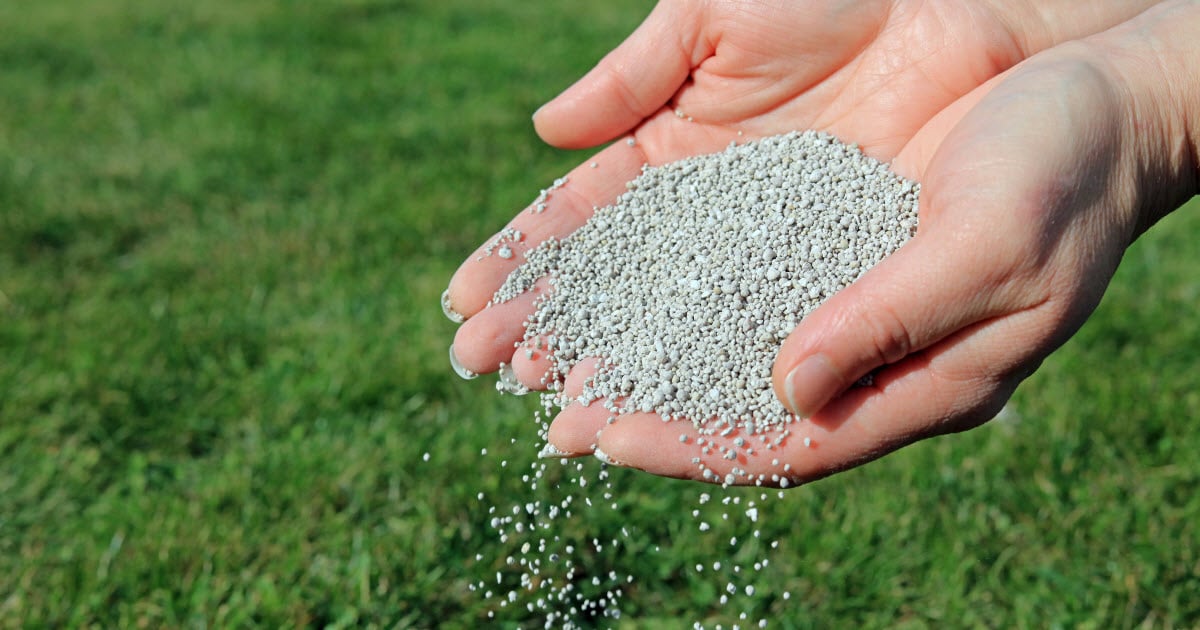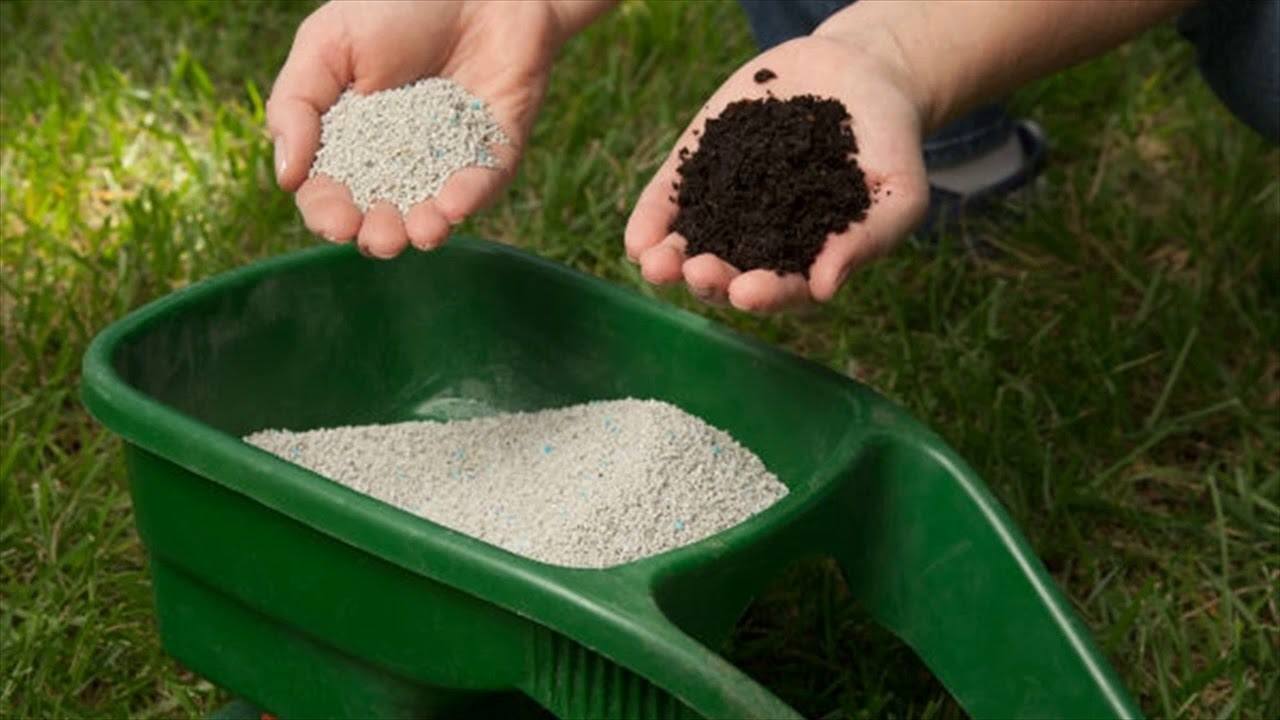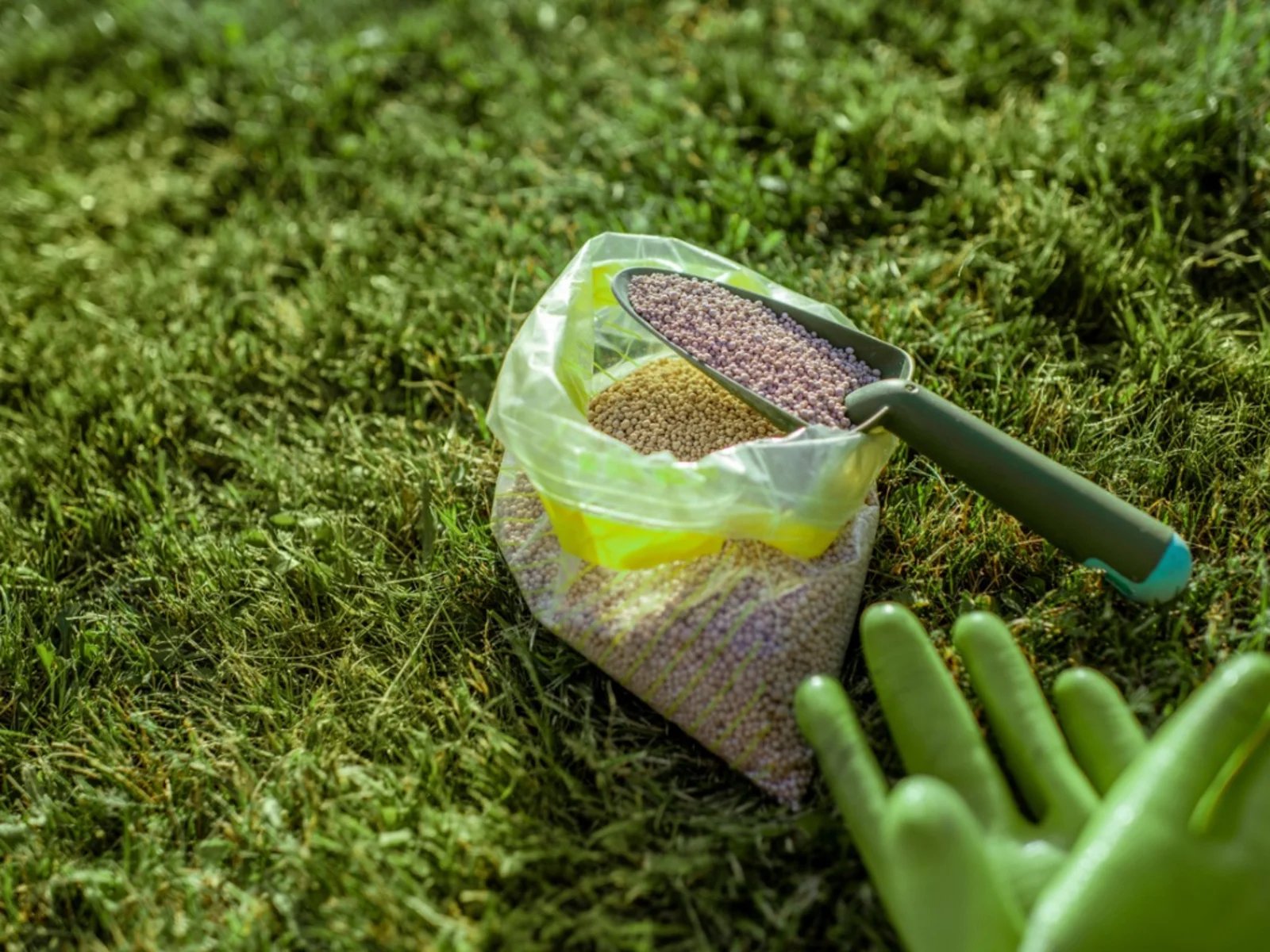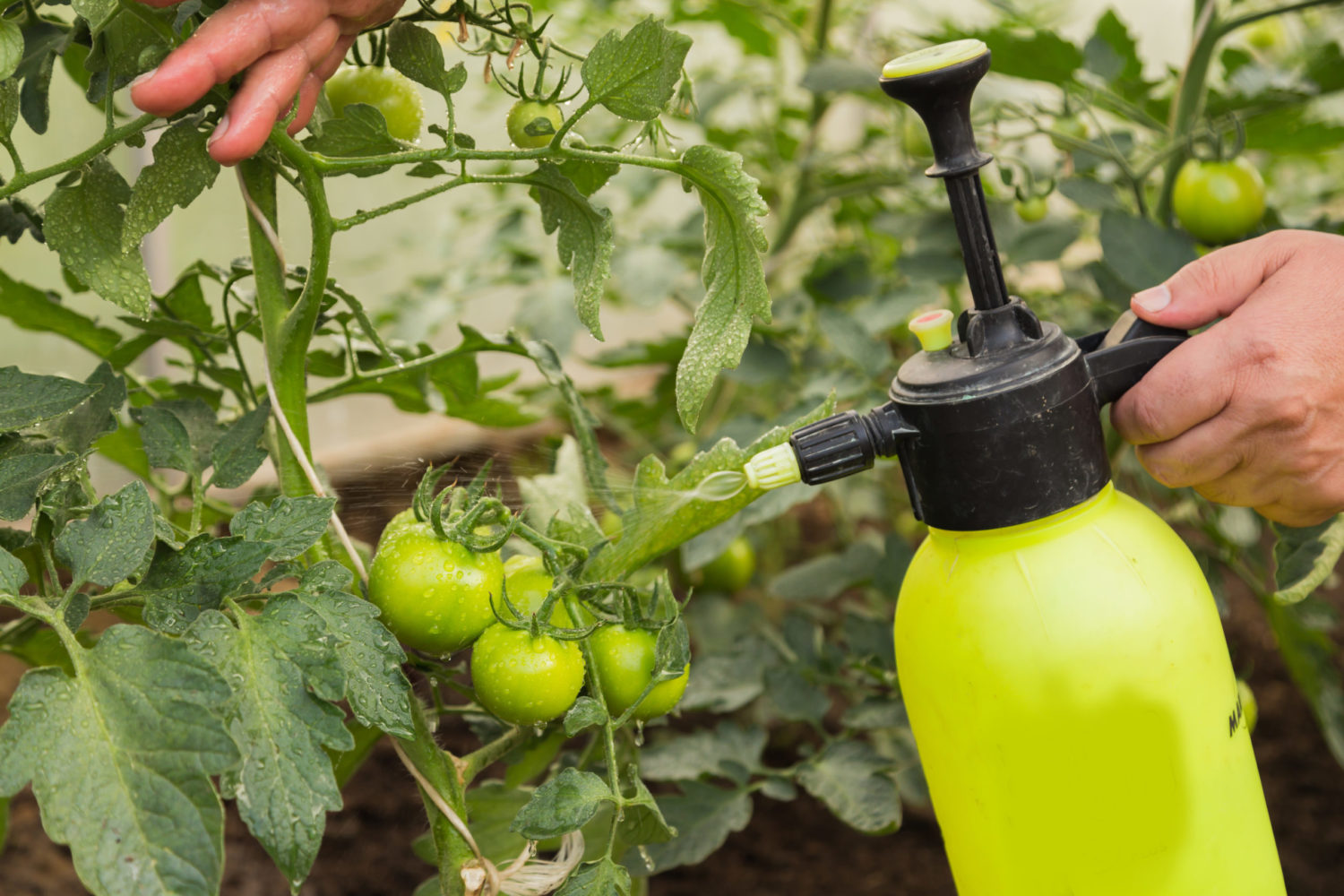Home>Types of Gardening>Edible Gardening>What Is 4-4-4 Fertilizer
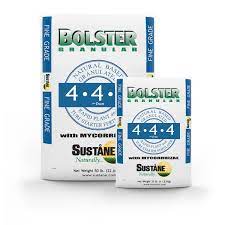

Edible Gardening
What Is 4-4-4 Fertilizer
Modified: January 22, 2024
Discover the benefits of using 4-4-4 fertilizer in your edible gardening. Enhance nutrient uptake and promote healthy plant growth with this versatile fertilizer.
(Many of the links in this article redirect to a specific reviewed product. Your purchase of these products through affiliate links helps to generate commission for Chicagolandgardening.com, at no extra cost. Learn more)
Table of Contents
Introduction
Welcome to the world of edible gardening! Whether you have a spacious backyard or just a small balcony, growing your own fresh fruits, vegetables, and herbs can be a rewarding and enjoyable experience. Not only does it provide you with a bountiful harvest of nutritious produce, but it also allows you to connect with nature and explore the wonders of gardening.
One key aspect of successful edible gardening is ensuring that your plants receive the right nutrients to thrive and produce the best harvest. This is where fertilizers come into play. Fertilizers provide essential nutrients that may be lacking in your soil, helping your plants grow healthy and robust.
There are numerous types of fertilizers available, each with its own nutrient composition and recommended usage. One such fertilizer is the 4-4-4 fertilizer, which is highly regarded among gardeners. In this article, we will take a closer look at what exactly 4-4-4 fertilizer is, its nutrient composition, benefits, application methods, potential drawbacks, and alternatives.
Whether you are a seasoned gardener or just starting out on your edible gardening journey, understanding the importance of fertilizers and choosing the right one is crucial. So, let’s dive into the specifics of 4-4-4 fertilizer and discover how it can contribute to the success of your edible garden!
What is 4-4-4 Fertilizer?
4-4-4 fertilizer, also known as an all-purpose fertilizer, is a type of balanced fertilizer that contains equal proportions of three essential macronutrients: nitrogen (N), phosphorus (P), and potassium (K). The numbers 4-4-4 represent the percentage of each nutrient in the fertilizer, respectively. This means that for every 100 pounds of 4-4-4 fertilizer, it contains 4 pounds of nitrogen, 4 pounds of phosphorus, and 4 pounds of potassium.
These macronutrients are crucial for strong plant growth and development. Nitrogen is responsible for promoting leafy green growth, phosphorus contributes to root development and flower production, while potassium aids in overall plant health and disease resistance.
One of the main advantages of using 4-4-4 fertilizer is its versatility. It can be applied to a variety of plants, making it a popular choice for edible gardens that have a diverse range of crops. Whether you are growing vegetables, fruits, herbs, or even ornamental plants, 4-4-4 fertilizer can provide the necessary nutrients to support their growth.
Another benefit of 4-4-4 fertilizer is its balanced nutrient composition. The equal proportions of nitrogen, phosphorus, and potassium in the 4-4-4 formulation ensure that plants receive a well-rounded supply of essential nutrients. This can lead to overall healthier and more productive plants.
Furthermore, 4-4-4 fertilizer is often made from organic sources such as plant and animal matter, making it a preferred choice for organic gardeners. Organic fertilizers are derived from natural materials and can promote soil health and improve long-term sustainability in your garden.
When using 4-4-4 fertilizer, it is important to follow the recommended application rates, as too much fertilizer can cause nutrient imbalances or even harm your plants. Be sure to read the instructions on the packaging and adjust the dosage according to the specific needs of your plants.
Next, let’s explore the nutrient composition of 4-4-4 fertilizer and how it benefits your edible garden.
Nutrient Composition of 4-4-4 Fertilizer
The nutrient composition of 4-4-4 fertilizer is equal parts nitrogen, phosphorus, and potassium, each contributing 4% of the total weight of the fertilizer. Let’s explore each of these nutrients in more detail and understand their role in plant growth.
Nitrogen
Nitrogen is an essential nutrient for plant growth and is crucial for the production of chlorophyll, which is responsible for photosynthesis. It promotes vigorous leafy growth, enhances the size and quality of foliage, and supports overall plant health. Nitrogen deficiency can result in yellowing leaves, stunted growth, and poor fruit or flower development.
Phosphorus
Phosphorus plays a crucial role in the development of strong roots, flowers, and fruit. It aids in energy transfer and storage processes within the plant and is vital for DNA replication, cell division, and protein synthesis. Phosphorus deficiency can lead to weak root systems, reduced flowering, and diminished fruit production.
Potassium
Potassium, also known as potash, is essential for overall plant health and disease resistance. It regulates numerous physiological processes, including water uptake, nutrient transport, and enzyme activation. Potassium deficiency can result in yellowing or necrosis of leaf margins, reduced plant vigor, and increased susceptibility to pests and diseases.
The balanced combination of nitrogen, phosphorus, and potassium in 4-4-4 fertilizer ensures that plants receive adequate amounts of these essential nutrients. This promotes healthy growth, strong root development, improved flowering, and increased fruit or vegetable production.
It is important to note that while 4-4-4 fertilizer provides a balanced nutrient composition, it may not address specific deficiencies or requirements of certain plants. Some plants may require higher or lower levels of specific nutrients based on their individual needs. Therefore, it is recommended to conduct a soil test to determine the nutrient needs of your specific crops and make necessary adjustments to the fertilizer application.
In the next section, we will explore the benefits of using 4-4-4 fertilizer in your edible garden.
Benefits of Using 4-4-4 Fertilizer
There are several notable benefits to using 4-4-4 fertilizer in your edible garden. Let’s explore some of the advantages it offers:
Promotes Balanced Plant Growth
The equal proportions of nitrogen, phosphorus, and potassium in 4-4-4 fertilizer provide a balanced nutrient profile for your plants. This ensures that they receive the essential nutrients they need in the right proportions, promoting overall balanced growth. By providing a well-rounded nutrition, 4-4-4 fertilizer can enhance the development of strong roots, lush foliage, vibrant blooms, and abundant fruit or vegetables.
Suitable for a Variety of Edible Plants
One of the major benefits of 4-4-4 fertilizer is its versatility. It can be used on a wide range of edible plants, including vegetables, fruits, and herbs. Whether you have a diverse garden with different types of crops or a specific plant that requires balanced nutrition, 4-4-4 fertilizer can meet the needs of various plants, making it an ideal option for edible gardening.
Improves Soil Fertility
Regularly applying 4-4-4 fertilizer can improve the fertility of your soil over time. It replenishes essential nutrients in the soil, ensuring that it remains rich and fertile for sustained plant growth. Additionally, organic varieties of 4-4-4 fertilizer can enhance soil structure, microbial activity, and nutrient retention, leading to improved long-term soil health.
Sustainable and Environmentally Friendly
4-4-4 fertilizers are available in organic formulations, making them an environmentally friendly choice. Organic fertilizers are derived from natural sources, such as plant and animal matter, and don’t contain synthetic chemicals or additives. Using organic 4-4-4 fertilizer promotes sustainable gardening practices, reduces the risk of chemical runoff, and supports a healthier ecosystem.
Promotes Nutritious Harvest
By providing the necessary nutrients for plant growth, 4-4-4 fertilizer can contribute to the production of nutrient-rich harvests. Since the plants are receiving adequate nutrition, they are more likely to produce fruits, vegetables, and herbs that are packed with flavor, vitamins, and minerals. This can enhance the overall quality and nutritional value of the crops you grow in your edible garden.
Now that we have explored the benefits of using 4-4-4 fertilizer, let’s move on to the various methods of applying this fertilizer in your garden.
Application of 4-4-4 Fertilizer
When it comes to applying 4-4-4 fertilizer in your edible garden, there are several methods you can use to ensure proper nutrient distribution and uptake by your plants. Let’s explore some common application techniques:
Top Dressing
One popular method is top dressing, which involves applying the 4-4-4 fertilizer directly to the soil surface around your plants. Start by spreading a thin layer of the fertilizer evenly around the base of the plants, being careful not to let it touch the plant stems or leaves. After application, lightly work the fertilizer into the top layer of soil, and water thoroughly to help with nutrient absorption.
Side Dressing
Side dressing is another effective method, especially for crops that require additional nutrients during their growth stages. To side-dress your plants, create a shallow trench or furrow beside the plant row, and sprinkle or spread the 4-4-4 fertilizer evenly along the trench. Cover the fertilizer with soil and water thoroughly to ensure the nutrients reach the plant roots.
Foliar Spray
In some cases, a foliar spray application can be beneficial, especially for fast-growing plants or during periods of nutrient deficiency. Dilute the 4-4-4 fertilizer according to the package instructions and use a sprayer to apply a fine mist of the solution directly onto the leaves of the plants. This allows for quick absorption of nutrients through the plant foliage.
Dilution for Container Gardens
For container gardens, it is important to adjust the concentration of the fertilizer to avoid over-fertilization. Follow the recommended dilution ratios on the fertilizer packaging and water your potted plants with the diluted solution. This ensures that the plants receive the necessary nutrients without causing nutrient buildup in the confined space of the containers.
Timing and Frequency
The timing and frequency of 4-4-4 fertilizer application may vary depending on the specific requirements of your plants and the soil conditions. As a general guideline, it is best to apply fertilizer at the beginning of the growing season when the plants are actively growing. Monitor your plants for signs of nutrient deficiency, such as stunted growth or yellowing leaves, and provide additional fertilizer as needed throughout the growing season.
Remember to always follow the instructions provided by the manufacturer when applying 4-4-4 fertilizer. Proper application techniques and adherence to recommended dosages will ensure optimal nutrient uptake by your plants while minimizing the risk of nutrient imbalances or potential harm to your plants.
In the next section, we will explore some potential drawbacks of using 4-4-4 fertilizer and discuss alternative options.
Potential Drawbacks of 4-4-4 Fertilizer
While 4-4-4 fertilizer has many benefits, it is important to consider some potential drawbacks before using it in your edible garden. Understanding these limitations can help you make informed decisions about your fertilization practices:
Possible Nutrient Imbalances
The balanced nutrient composition of 4-4-4 fertilizer may not align with the specific nutrient requirements of certain plants or soil conditions. Different crops have varying nutrient needs at different growth stages. Using a one-size-fits-all fertilizer like 4-4-4 may result in excess or insufficient nutrient levels, leading to nutrient imbalances and potential negative effects on plant health and productivity.
Possible Over-Fertilization
Over-fertilization can occur if 4-4-4 fertilizer is applied excessively or not used according to the recommended dosage. Excess nutrients can build up in the soil and cause nutrient imbalances, which can lead to nutrient toxicity and damage to plants. It is important to carefully follow the instructions on the fertilizer packaging and monitor your plants’ response to ensure they are not being over-fertilized.
Availability of Specific Nutrients
While 4-4-4 fertilizer provides a balanced blend of essential macronutrients, it may not address specific nutrient deficiencies or requirements of certain plants. Some crops or soil types may require higher or lower levels of specific nutrients, such as micronutrients like iron or calcium. Assessing the nutrient needs of your plants through soil tests and considering targeted fertilizers can help address specific deficiencies more effectively.
Not Suitable for All Soil Types
4-4-4 fertilizer may not be suitable for all soil types. Some soils may naturally have high levels of certain nutrients, while others may be deficient. It is important to perform a soil test to determine the nutrient levels and composition of your soil before using 4-4-4 fertilizer. Based on the test results, you may need to adjust the fertilizer application or consider alternative fertilizers that are better suited for your specific soil conditions.
Environmental Considerations
While organic formulations of 4-4-4 fertilizer exist, conventional varieties may contain synthetic chemicals and additives that can have negative environmental impacts. Chemical runoff from fertilizers can contribute to water pollution and harm aquatic ecosystems. If you are concerned about these potential environmental impacts, consider using organic or alternative nutrient management strategies in your garden.
By being aware of these potential drawbacks, you can make informed choices about the use of 4-4-4 fertilizer in your edible garden. In the next section, we will explore some alternative options to consider for your fertilizer needs.
Alternatives to 4-4-4 Fertilizer
While 4-4-4 fertilizer is a popular choice for many gardeners, there are alternative fertilizers that you can consider for your edible garden. These alternatives offer different nutrient compositions and methods of application to meet the specific needs of your plants and soil. Let’s explore some of these options:
Organic Fertilizers
If you prefer organic gardening practices, organic fertilizers are a great alternative to 4-4-4 fertilizer. They are derived from natural sources such as compost, manure, or plant-based materials. Organic fertilizers enrich the soil with nutrients and also improve soil structure and microbial activity. Examples of organic fertilizers include compost, fish emulsion, seaweed extract, and bone meal. Organic fertilizers provide a slow and steady release of nutrients, promoting long-term soil health and sustainability.
Slow-Release Fertilizers
Slow-release fertilizers are another alternative to consider. These fertilizers deliver nutrients to your plants gradually over an extended period of time. They come in various formulations, including granules, pellets, or coated prills. Slow-release fertilizers provide a steady supply of nutrients to plants, reducing the risk of over-fertilization and nutrient leaching. They are particularly beneficial for plants with long growing seasons or for gardeners who prefer a low-maintenance approach to fertilizing.
Customized Fertilizers
If you have conducted a soil test and identified specific nutrient deficiencies in your garden, customized fertilizers can be a suitable alternative. These fertilizers are formulated to address the specific nutrient requirements of your soil and crops. Based on the soil test results, you can select a fertilizer blend that provides the targeted nutrients needed for optimum plant growth. Customized fertilizers allow you to fine-tune your fertilization approach and ensure that your plants receive the nutrients they require.
Compost and Organic Matter
Using compost and incorporating organic matter into your soil is another effective way to provide essential nutrients to your plants. Compost is rich in organic matter and beneficial microorganisms that enhance soil fertility and structure. It improves nutrient retention, water-holding capacity, and microbial activity in the soil. By amending your soil with compost and regularly incorporating organic matter, you can create a nutrient-rich environment that supports healthy plant growth.
Cover Crops and Green Manure
Cover crops and green manure are natural alternatives to traditional fertilizers. Cover crops such as legumes (e.g., clover, vetch) or grasses are grown during fallow periods or as a winter crop. They help build soil structure, suppress weeds, and enrich the soil with organic matter and nitrogen when they are turned into the soil as green manure. Cover crops and green manure provide a sustainable way to improve soil fertility and nutrient content without relying on synthetic fertilizers.
Consider these alternative fertilizers and practices based on your gardening goals, soil conditions, and plant requirements. Experimenting with different options can help you discover the best approach for your specific garden. In the final section, we will summarize the key points discussed in this article.
Conclusion
As an edible gardener, choosing the right fertilizer is crucial for the success and productivity of your plants. 4-4-4 fertilizer, with its balanced nutrient composition, is a versatile option that can support the growth of a wide range of edible plants. Its equal parts nitrogen, phosphorus, and potassium promote balanced plant growth, improved root development, vibrant blooms, and abundant harvests.
However, it is important to be aware of the potential drawbacks of 4-4-4 fertilizer, such as possible nutrient imbalances, over-fertilization, and the lack of customization for specific soil conditions or crop needs. This awareness allows you to make informed decisions and consider alternative fertilizers that may better suit your individual gardening requirements.
Alternatives such as organic fertilizers, slow-release fertilizers, customized fertilizers, compost, and green manure offer different nutrient compositions and application methods. Incorporating these alternatives into your fertilization practices can provide targeted nutrition, improve soil health, and support sustainable gardening practices.
Remember to always read and follow the instructions on fertilizer packaging, adjust application rates as needed, and regularly monitor your plants for signs of nutrient deficiencies or excesses. Conducting soil tests and considering the specific needs of your plants will help you make informed fertilizer choices and achieve optimal results in your edible garden.
Embrace the joy of edible gardening and the nourishment it provides, knowing that your choice of fertilizer will support robust plant growth and contribute to the success of your harvests. Happy gardening!
